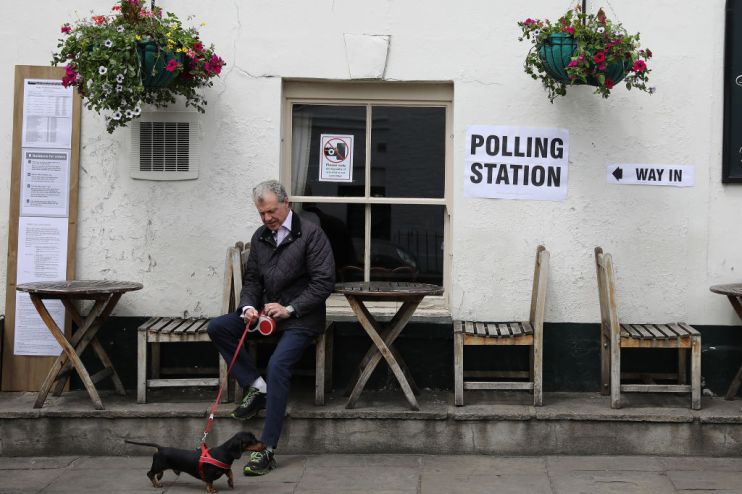The election could redraw the country and reshape the Tories

Opinion polls don’t just report the state of play, they can help fashion what comes next.
The huge YouGov survey of 100,000 voters that translated into a Tory majority of 68 was unusual not just because of its scale but because it analysed every constituency.
Most polls take a small national sample and use that to project a wider picture, whereas YouGov’s multi-level regression and post-stratification (MPR) poll looked at every constituency and then presented a national electoral portrait.
For the Tories, any celebration would have been short-lived. The last thing they want is for would-be supporters to feel that the pressure’s off. Thirty of the seats that YouGov suggested could switch from Labour to Tory have the blues with just a five-point lead.
Armed with the MPR analysis, Labour strategists can now pivot their campaign to defending these seats — the so-called Red Wall through which the Tories must charge if they are to secure a majority.
The Tories will also have a clear picture of where they must focus efforts and, more importantly, who their likely new voters are.
Before the MPR poll was released, pollster Peter Kellner trawled through the data stretching back to 2015 and concluded that Leave-voting Labour supports stuck with Jeremy Corbyn in the 2017 election but are much less likely to do so now.
When Theresa May went to the polls, 64 per cent of Leave voters backed her party. Under Boris Johnson, that figure is more like 73 per cent.
Kellner says the size of this swing, combined with Labour’s poor showing in Leave-supporting areas, could see the Tories claim seats they’ve never held before.
If this happens, says Kellner, it will reflect “a huge structural change in the way millions of people decide how to vote”. Should these predictions be borne out on 12 December, the resulting Tory party — and government — will look and feel very different to today’s.
i-Robot
Driving back from the nursery-drop the other day I heard a wonderful edition of the Life Scientific on Radio 4, featuring Demis Hassabis, chief executive of Deepmind — the Google-backed artificial intelligence (AI) company.
Hassabis talked about the breakthroughs that led to their AI programme, Alpha Go, defeating Lee Se-dol in the ancient strategy game Go. The game is so complex it has over 200 possible moves compared with around 20 in chess. That the machine learned how to play — and how to win — is of course a staggering achievement.
But there is also, surely, a certain sadness that a skill once the preserve of human creativity and ingenuity (Go has been played for 3,000 years) is now just another computerised task.
The machine won, but it couldn’t know that it had won. Yesterday, Se-dol, the world’s master Go player, announced he was retiring from the game as there now exists “an entity that cannot be defeated”.
A certain sadness, indeed.
Fond farewell
This weekend my young son and I are making the slow journey back to the Isles of Scilly.
There will be much excitement as we board the sleeper train from Paddington and even more when we climb into the little eight-seater plane from Land’s End.
Chaplin first visited my home islands when he was a few months old, and I can still see him with my great-great aunt, Joan, in whose arms he slept so happily. She was 103 when she met him, and 105 when she died last week. We’re going home for the funeral.
Dear Auntie Joan, born before the outbreak of the First World War, she was so thrilled to meet so many of the most recent generation.
What an extraordinary physical link through the ages it was for her to know my son, and my brother’s daughters.
Our children, born more than a century after her, will not remember being held by their great-great-great aunt, but we will show them photos of a beaming Auntie Joan, looking into their infant eyes and they may come to feel that they knew her after all.
Main image: Getty
